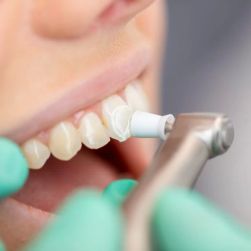Can Elderly Individuals Get Dental Implants, and What Are the Risks and Benefits?
In the realm of senior oral health, a prevailing question is: Can elderly individuals get dental implants? Dental implants have revolutionized the way missing teeth are replaced, offering a permanent solution that improves aesthetic and functional aspects of oral health. As life expectancy increases, so does the importance of maintaining oral health in older age. For many seniors, the idea of dental implants seems daunting, but understanding the procedure, risks, and potential benefits is crucial for making an informed decision. This article will delve into whether dental implants are suitable for elderly individuals, the risks involved, and the benefits they can provide.
Understanding Dental Implants and Suitability for Seniors
Dental implants involve placing a titanium post into the jawbone, serving as an artificial root for a replacement tooth. While traditionally associated with younger individuals, modern advancements have made this option viable for seniors who wish to regain their full smile and enjoy the benefits of natural-looking teeth. For elderly individuals, considerations such as bone density, general health condition, and medication are key in determining suitability. Studies indicate that age alone is not a contraindication for dental implants, and many seniors have successfully received them with remarkable results.
Potential Risks of Dental Implants in Elderly Patients
Despite the success stories, dental implants do carry potential risks, especially for elderly patients. One primary concern is the reduced bone density in seniors, which might hinder osseointegration, the process whereby the jawbone fuses with the implant. Additionally, systemic conditions such as osteoporosis, diabetes, and heart disease can complicate the procedure. Moreover, seniors are often on medication that could affect healing post-surgery. It’s essential for elderly patients to have a comprehensive dental and medical evaluation to address these risks effectively.
Benefits of Dental Implants for Elderly Individuals
Despite the risks, the benefits of dental implants for seniors can be transformative. Dental implants can significantly enhance quality of life by improving the ability to chew, thereby allowing for a more varied and nutritious diet. They also prevent bone loss, a common issue related to missing teeth, and maintain facial structure. The psychological benefits are substantial as well, offering boosted confidence and improved speech. For seniors, the permanence and functionality of implants make them a worthwhile consideration when aiming for long-term oral health.
The Process of Getting Dental Implants: What Seniors Can Expect
For seniors considering dental implants, understanding the process can alleviate apprehension. The procedure involves several phases, including evaluation, surgery for implant placement, healing time, and final restoration. Recovery times may vary, particularly for older patients due to slower bone regeneration. However, personalized care plans developed by specialists can address these challenges. A commitment to oral hygiene and regular check-ups at Dentistry Toothtruth is crucial for long-term success.
Conclusion and Recommendations
In conclusion, elderly individuals can indeed get dental implants, and despite certain risks, the benefits can be profoundly life-enhancing. By assessing medical conditions, discussing with dental professionals, and considering individual needs, seniors can make informed choices about their oral health future. At Dentistry Toothtruth, we emphasize that each patient is unique, and tailored solutions are paramount. Seniors considering dental implants should consult with their dentist to develop a plan that ensures safety and maximizes benefits, enhancing their smile and, ultimately, their life quality.






